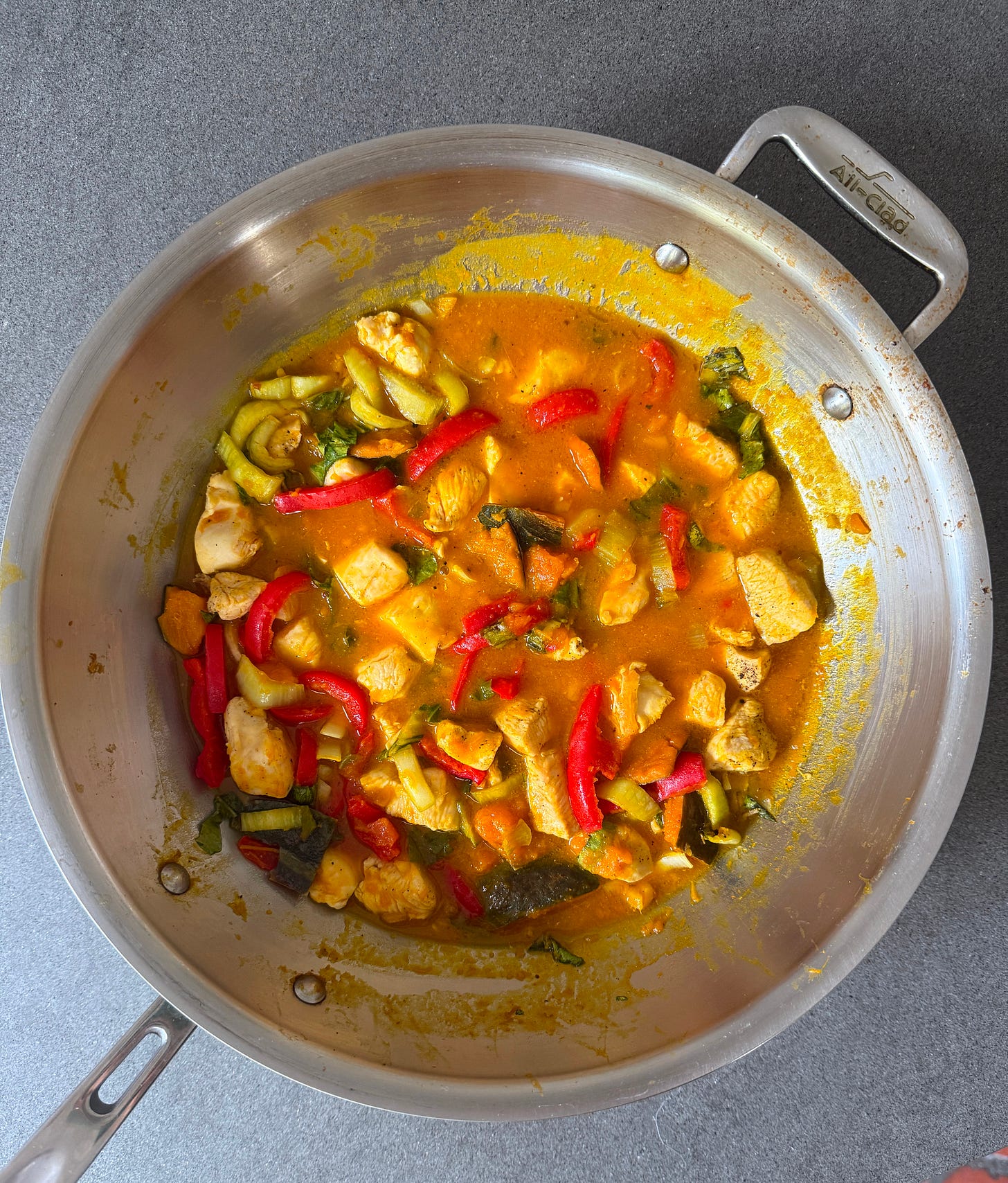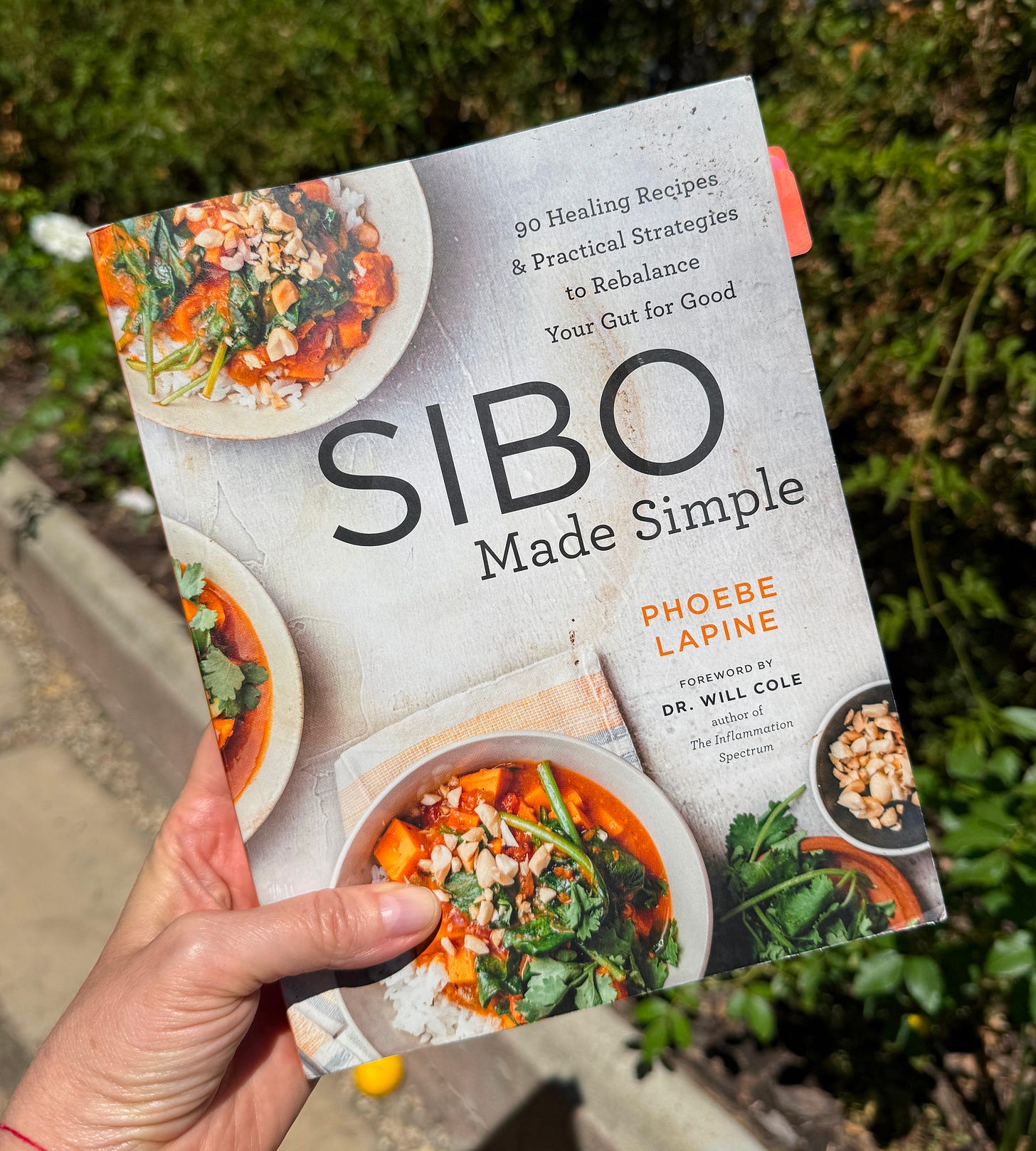I Was Just Really Bloated… Turns Out, It Was SIBO
As someone who never really thought about gut issues—or fully understood what it meant to have issues around food—I was caught completely off guard when my body started changing in ways I couldn’t ignore.
It wasn’t just the usual “I’m a little bloated.” It was uncomfortable, all-consuming bloating—tight, distended, and weirdly painful. I felt heavy, sluggish, and confused. Sure, I knew people who talked about digestion and gut health, but it was never something I personally dealt with.
That changed a few weeks ago when I started having persistent GI issues that felt... different. I knew I had to figure out what was going on. After a little digging (okay, maybe a lot of late-night Googling), I came across something called SIBO. I decided to take a breath test and, well—here we are.
What Is SIBO?
SIBO stands for Small Intestinal Bacterial Overgrowth. It means bacteria that are normally found in your large intestine have overgrown into your small intestine—where they don’t belong.
This excess bacteria ferments food in the small intestine (especially certain carbohydrates), producing gas and inflammation. The result? Bloating, stomach pain, brain fog, constipation or diarrhea, fatigue, and nutrient deficiencies. For me, it was the bloating that screamed loudest.
What Causes It?
There are a few possible triggers, including:
Food poisoning or a gut infection
Slowed digestion or poor motility (how fast things move through your gut)
Long-term use of certain medications (like PPIs)
Surgery or structural issues in the gut
Even chronic stress
Sometimes it’s one thing, sometimes it’s a perfect storm. I’m still trying to figure out what exactly caused mine.
How Do You Treat It?
There isn’t one magic fix, but most treatment plans include:
Antimicrobials or antibiotics to reduce the bacterial overgrowth
Dietary changes (more on that below)
Prokinetics to support proper gut motility
Lifestyle support like stress reduction, sleep, and nervous system regulation
And sometimes elemental diets or herbal protocols for more stubborn cases
So Why Am I Sharing This?
Because food is such a huge part of who I am. Cooking, sharing meals, creating recipes—it’s all tied to joy, comfort, and connection. So being told I need to completely change the way I eat was... a lot.
And I figured if I’m feeling overwhelmed, frustrated, and totally unsure of what to do next—someone else out there might be too.
What I’m Eating Now
After sifting through a ton of conflicting advice online (truly, the rabbit holes are deep), I decided to follow the SIBO Specific Food Guide, which combines elements of low-FODMAP and the Specific Carbohydrate Diet. It’s not forever, but it gives my gut a chance to heal without constantly triggering symptoms.
One thing I’ve learned: you have to pick a direction and move forward. Perfection doesn’t exist, and what works for one person might not work for another.
A Recipe I’m Loving Right Now
This is one of the first recipes I made that felt nourishing and actually delicious while sticking to the SIBO guidelines. It’s warming, easy on digestion, and still full of flavor.
Ginger Turmeric Chicken Stew (SIBO-Friendly)
This is one of the first recipes I made after being diagnosed with SIBO. It’s warming, grounding, and full of flavor without overwhelming the gut. Everything is intentionally chosen to be gentle, simple, and nourishing.
Serves: 3–4
Time: 30 minutes
Ingredients
2 tbsp ghee, divided
1 lb chicken breast or thighs, cut into bite-sized cubes
Salt and pepper, to taste
1 tbsp freshly grated ginger
1 tbsp freshly grated turmeric (or 1 tsp ground turmeric)
2 cups kabocha squash, peeled and diced
1½ cups chicken broth (use homemade or low-FODMAP)
1 red bell pepper, thinly sliced
1 small–medium bok choy, chopped
Instructions
Heat 1 tbsp of ghee in a large pan or Dutch oven over medium heat. Season the chicken with salt and pepper and cook until lightly browned on all sides. It doesn’t need to be fully cooked through. Remove and set aside.
Add the remaining 1 tbsp of ghee to the pan. Sauté the ginger and turmeric for 1–2 minutes until fragrant.
Stir in the diced kabocha squash and 1 cup of broth. Bring to a gentle boil, then reduce to a simmer. Cover and cook for 10 minutes, until the squash begins to soften.
Return the chicken to the pan. Add the red bell pepper and bok choy. Season again with salt and pepper. Pour in the remaining ½ cup of broth.
Cover and simmer for another 10 minutes, or until the chicken is fully cooked and the vegetables are tender.
If you’ve been diagnosed with SIBO (or think you might have it), I’m sending love and calm your way. I’ll keep sharing recipes and things that help me along the way—because figuring this out can feel lonely, but it doesn’t have to be.
Oh—and new recipes incoming, so get ready. 💛
Cookbooks + Resources I’m Exploring
These have been helpful for finding inspiration while navigating a SIBO-friendly lifestyle:
SIBO Made Simple by Phoebe Lapine – Practical, friendly, and packed with recipes that don’t feel restrictive.
The SIBO Cookbook for the Newly Diagnosed by Kendra Colson – A clear, gentle guide with beginner-friendly meals.
Healthy Gut, Healthy You by Dr. Michael Ruscio – More science-based, but excellent for understanding the why behind gut healing.






Sorry to hear. We should definitely chat!